
Intensive Docker & K8s Bundle
60+ Hours Beginner - Advanced
Purchase of this bundle gives you access to all of our existing & future Docker & K8s courses durring your membership year (12 month membership).

What You'll Learn
This is a comprehensive and advanced training for the engineer who wants to learn the tips and tricks used by top DevOps professionals. You will be challenged to think about what you’re doing and why, with a focus on making you a better engineer.
Requirements
You don't need to have prior experience with Docker, or Kubernetes. However, it is helpful to be familiar with basic programming concepts (i.e structural vs object oriented programming, command line, etc..).
Detailed Course Info- Skill Level: Beginner - Advanced
- Bundle Length: 60+ Hrs
Note: All of our bundles are for a one year subscription to the course content. This includes all updates and new content added during that time.
Team Pricing: We offer special pricing models for teams
Courses Included in the Bundle
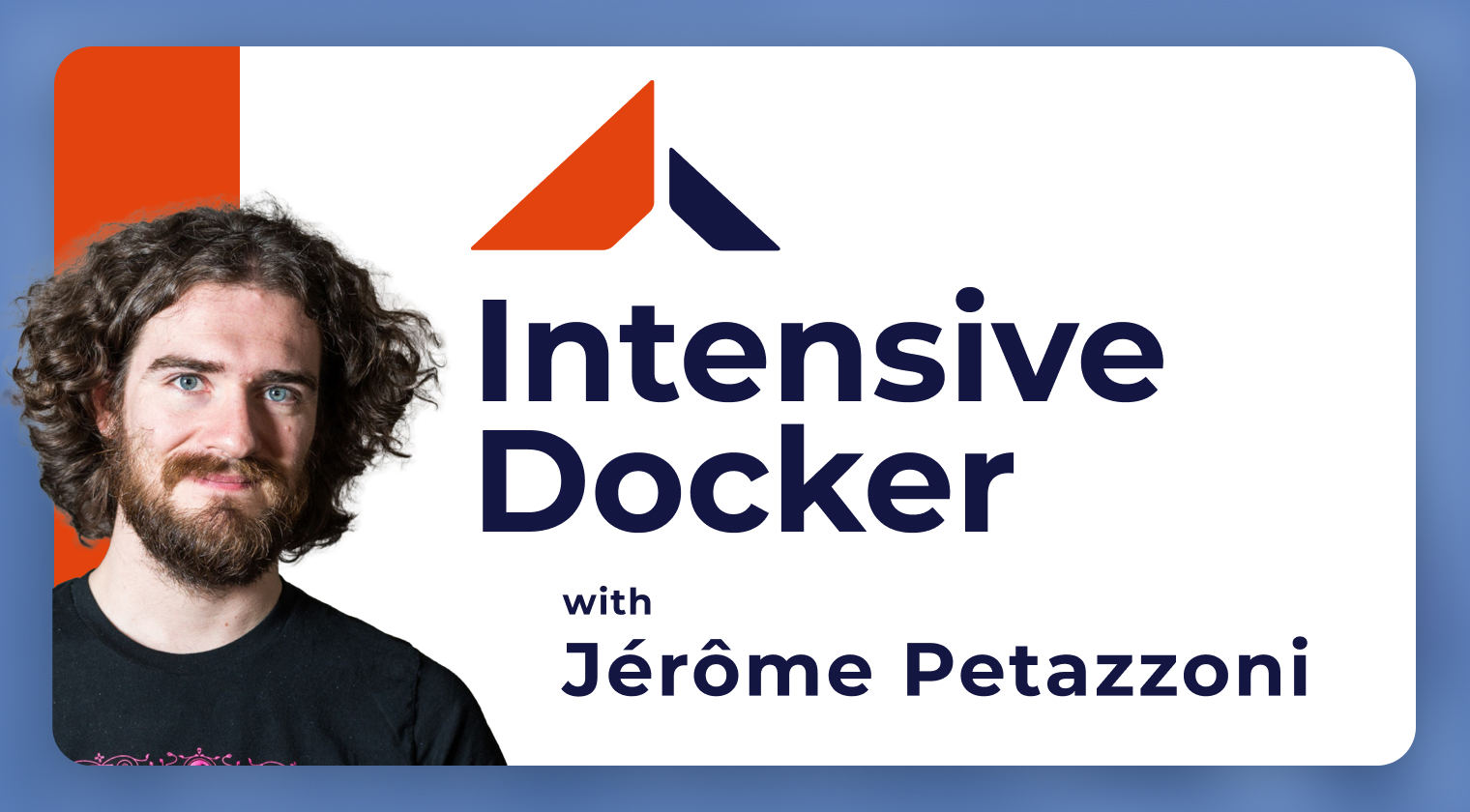
20+ total hours
Beginner
Intensive Docker
This is a course for devs, ops, architects; all kinds of IT professionals and engineers who need to understand Docker and containers.
with: Jérôme Petazzoni
View Course Info

20+ total hours
Beginner
Intensive Docker
This is a course for devs, ops, architects; all kinds of IT professionals and engineers who need to understand Docker and containers.
with: Jérôme Petazzoni
Course Introduction
This course will help you establish foundational concepts of Docker & containers. You’ll complete labs and assignments that will help you become productive at designing, packaging, deploying and operating modern applications.
This course is part of the Intensive Docker & Kubernetes track. Not sold separately.
Note: All of our bundles are for a one-year subscription.
At the end of the subscription period, your membership does not automatically renew.
Requirements:
- Should be comfortable using the command line.
- Docker installed on your machine.
- No prior experience with containers necessary.
Course Outline
Day 1:
- Introduction to the Docker CLI
- Containers, images, and layers
- What’s signal handling and why it’s important
- Managing container lifecycle
- Building images with Dockerfiles
- Understanding and managing the build cache
Day 2:
- Container networking concepts
- Connecting and exposing containers
- Containerized development environments
- Assembling stacks with Docker Compose
- Service discovery with containers
Day 3:
- Debugging containers
- Names and labels
- Tips, tricks, and best practices for efficient Dockerfiles
- Techniques to reduce image size
- Multi-stage builds
Day 4:
- Advanced BuildKit usage
- Multi-arch images (e.g. for ARM64 platforms)
- Container network drivers
- Control groups and Linux kernel namespaces
- Security features: LSM, capabilities, seccomp2
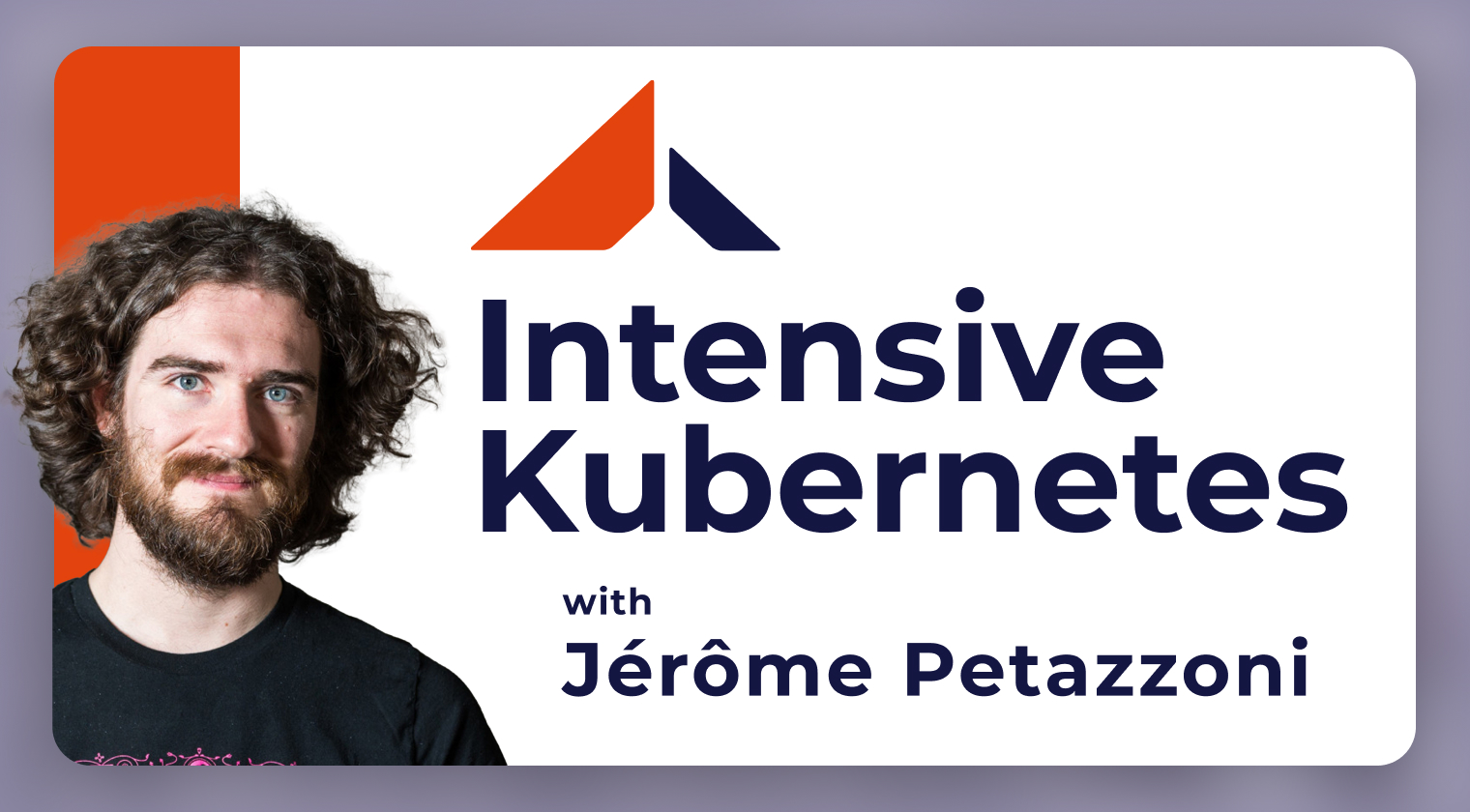
20+ total hours
Intermediate
Intensive Kubernetes
This is a course for devs, ops, architects; all kinds of IT professionals and engineers who need to understand Kubernetes and container orchestration.
with: Jérôme Petazzoni
View Course Info

20+ total hours
Intermediate
Intensive Kubernetes
This is a course for devs, ops, architects; all kinds of IT professionals and engineers who need to understand Kubernetes and container orchestration.
with: Jérôme Petazzoni
Course Introduction
This is a course for any engineer who needs to deploy, scale, and operate applications in “Cloud Native” environments. You’ll complete labs and assignments that will help you become productive with Kubernetes.
This course is part of the Intensive Docker & Kubernetes track. Not sold separately.
Note: All of our bundles are for a one-year subscription.
At the end of the subscription period, your membership does not automatically renew.
Requirements:
- No Kubernetes experience necessary.
- Knowing the difference between a container and an image.
- Knowing how to run a container and how to build an image (with Docker or any other container engine).
- Using SSH to connect to a remote Linux machine.
- Basic shell commands (navigate directories, set environment variables…).
- Using a text editor like vi, nano, or similar.
Course Outline
Day 1:
- Kubernetes architecture overview
- Nodes, Namespaces
- Pods, Replica Sets, Deployments
- Services, service types, and the Kubernetes network model
- Deploying a micro-services application
Day 2:
- YAML in action
- Label and annotations
- Managing logs
- Imperative and declarative models
- Running a local development cluster
- Accessing remote clusters
Day 3:
- Scaling mechanisms
- Daemon Sets
- Labels and selectors
- Rolling updates
- Healthchecks
Day 4:
- Exposing HTTP services with Ingress resources
- Volumes
- Configuration management
- Managing secrets
Day 5:
- Executing batch jobs
- Leveraging Tilt for development environments
- Deploying a cluster with Terraform/OpenTofu (11+ cloud providers supported)
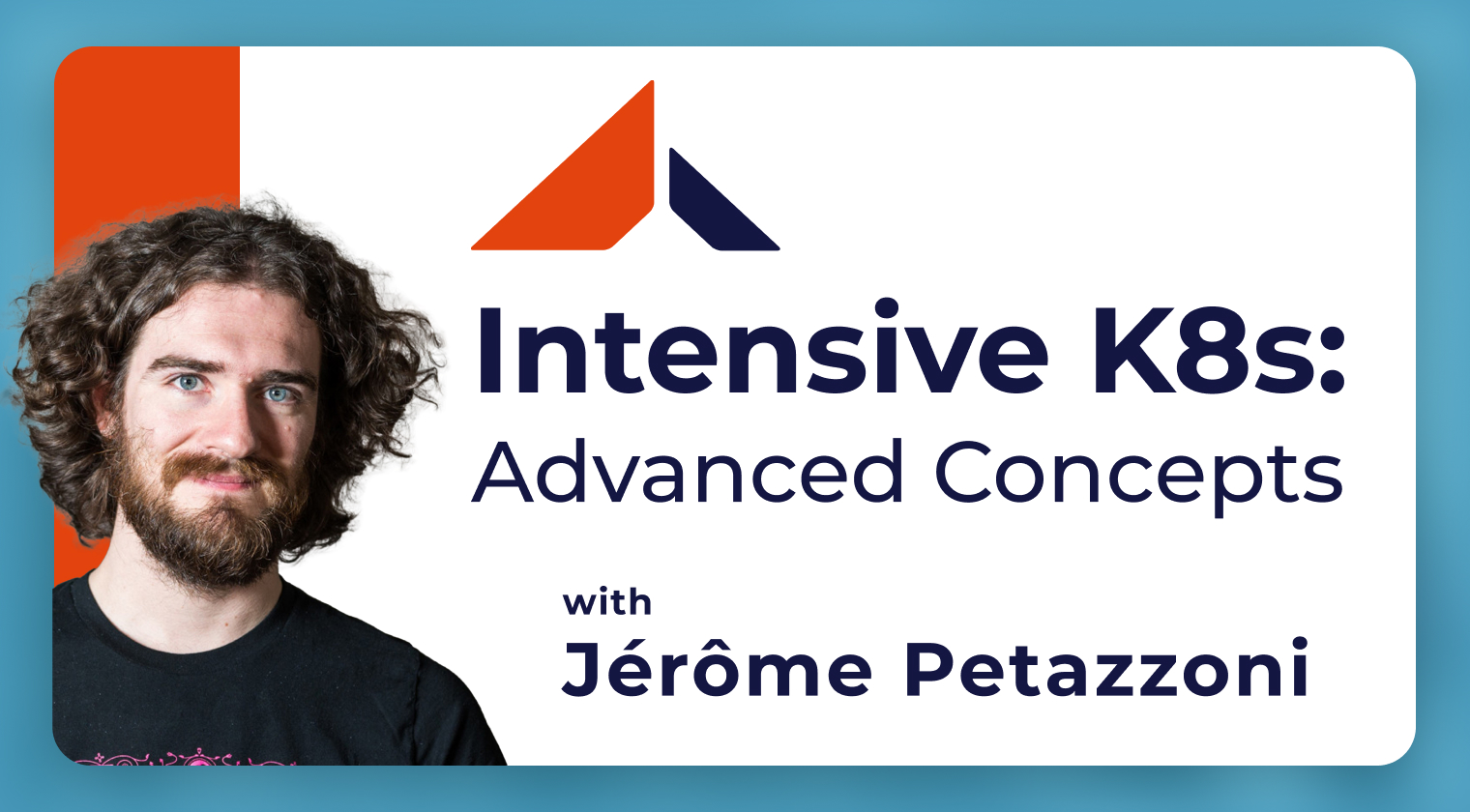
16+ total hours
Intermediate
Intensive Kubernetes: Advanced Concepts
This course covers advanced concepts around application packaging, capacity planning, resource management, security, operators, and the specific mechanisms associated with stateful application deployment.
with: Jérôme Petazzoni
View Course Info

16+ total hours
Intermediate
Intensive Kubernetes: Advanced Concepts
This course covers advanced concepts around application packaging, capacity planning, resource management, security, operators, and the specific mechanisms associated with stateful application deployment.
with: Jérôme Petazzoni
Course Introduction
This course is for devs, ops, and architects, who have already started working with Kubernetes and want to learn more advanced concepts. Students will complete numerous labs and exercises.
This course is part of the Intensive Docker & Kubernetes track. Not sold separately.
Note: All of our bundles are for a one-year subscription.
At the end of the subscription period, your membership does not automatically renew.
Requirements:
- Understanding of Pods, Deployments, Services.
- How to deploy an app and expose it on a Kubernetes cluster.
- Basic notions of what are labels, selectors, YAML manifests.
- Basic shell commands (navigate directories, set environment variables…).
- Using a text editor like vi, nano, or similar.
Course Outline
Day 1: security focus:
- Securing access with network policies
- Managing permissions with RBAC
- Managing secrets with Sealed Secrets
- Pod Security Settings and Admission
Day 2: resource management:
- Understanding requests and limits
- Compressible vs incompressible resources
- Pod eviction and kubelet under pressure
- Horizontal, vertical, and cluster- autoscaling
- Priorities and preemption
- Scaling with custom metrics
Day 3: extending the Kubernetes API:
- Overview of the different extension mechanisms
- Custom Resource Definitions
- Dynamic admission control with webhooks
- The aggregation layer
- Operator concepts
Day 4: operator and controller implementation:
- Operator design techniques
- Studying operators (e.g. Kyverno, cert-manager)
- The kubebuilder framework
- Writing a small operator with kubebuilder
- Events, finalizers, owners and dependents
Day 5: stateful applications:
- Stateful Sets, PV, PVC, Storage Classes
- Use-case: running a Consul cluster
- Dynamic storage provisioning
- Use-case: stateful failover of an active database
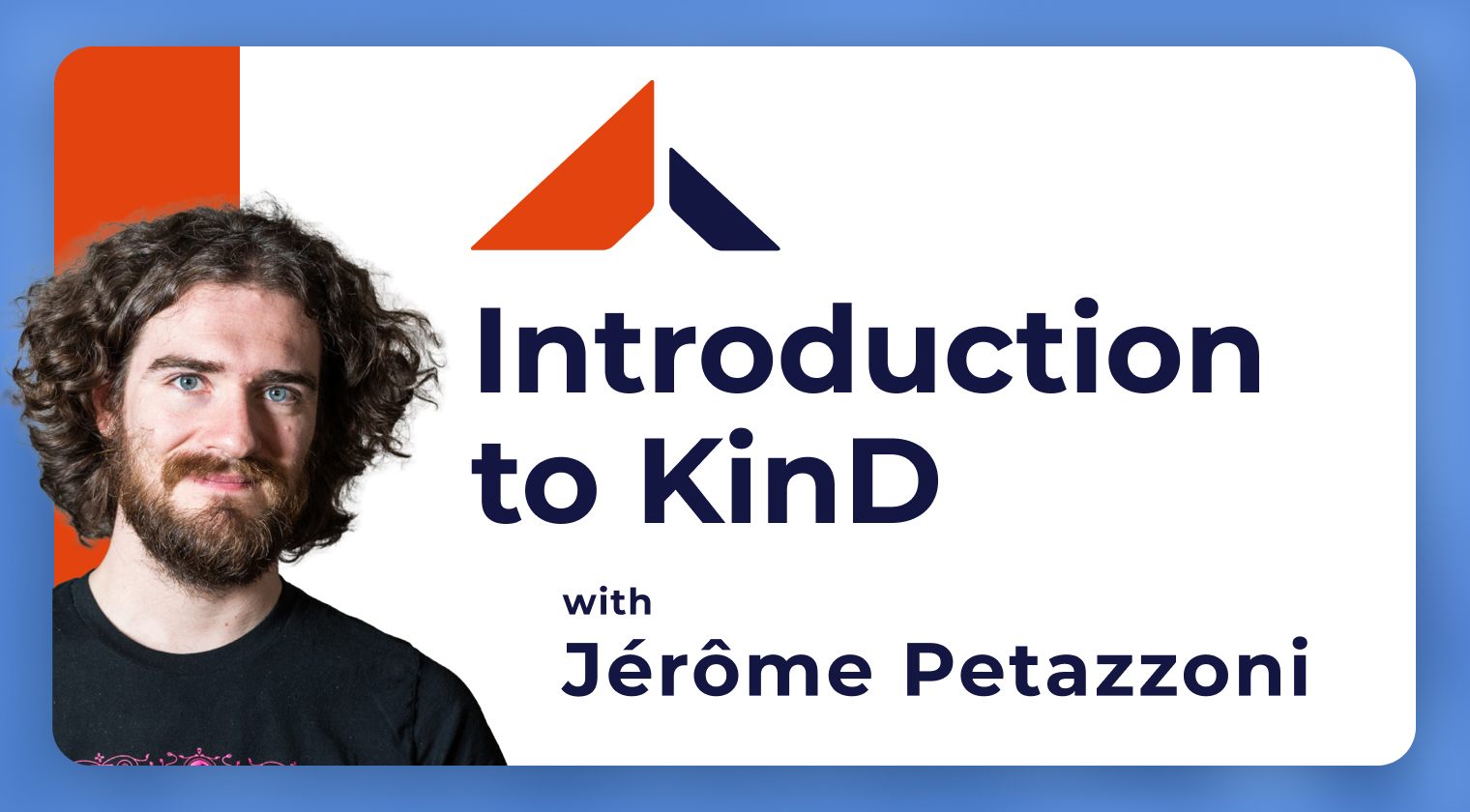
.5+ total hours
Beginner
Introduction to KinD
This course is for IT professionals and engineers who need to understand how to get a local Kubernetes development cluster using KinD. Perfect for anyone looking to stage up disposable clusters.
with: Jérôme Petazzoni
View Course Info

.5+ total hours
Beginner
Introduction to KinD
This course is for IT professionals and engineers who need to understand how to get a local Kubernetes development cluster using KinD. Perfect for anyone looking to stage up disposable clusters.
with: Jérôme Petazzoni
Course Introduction
Learn how to use KinD (Kubernetes-in-Docker) to get a local Kubernetes cluster across Linux, Mac, and Windows environments.
KinD is primarily used for testing Kubernetes but can also be utilized for local development or CI.
Note: All of our bundles are for a one-year subscription.
At the end of the subscription period, your membership does not automatically renew.
Requirements:
- No experience with containers necessary.
Course Outline
Introduction to KinD:
- 1.0 - Using KinD for local Kubernetes development
- 1.2 - 5 options for running Kubernetes locally
- 1.3 - Deploying a KinD cluster with multiple nodes
- 1.4 - Utilizing docker exec/docker stats with KinD
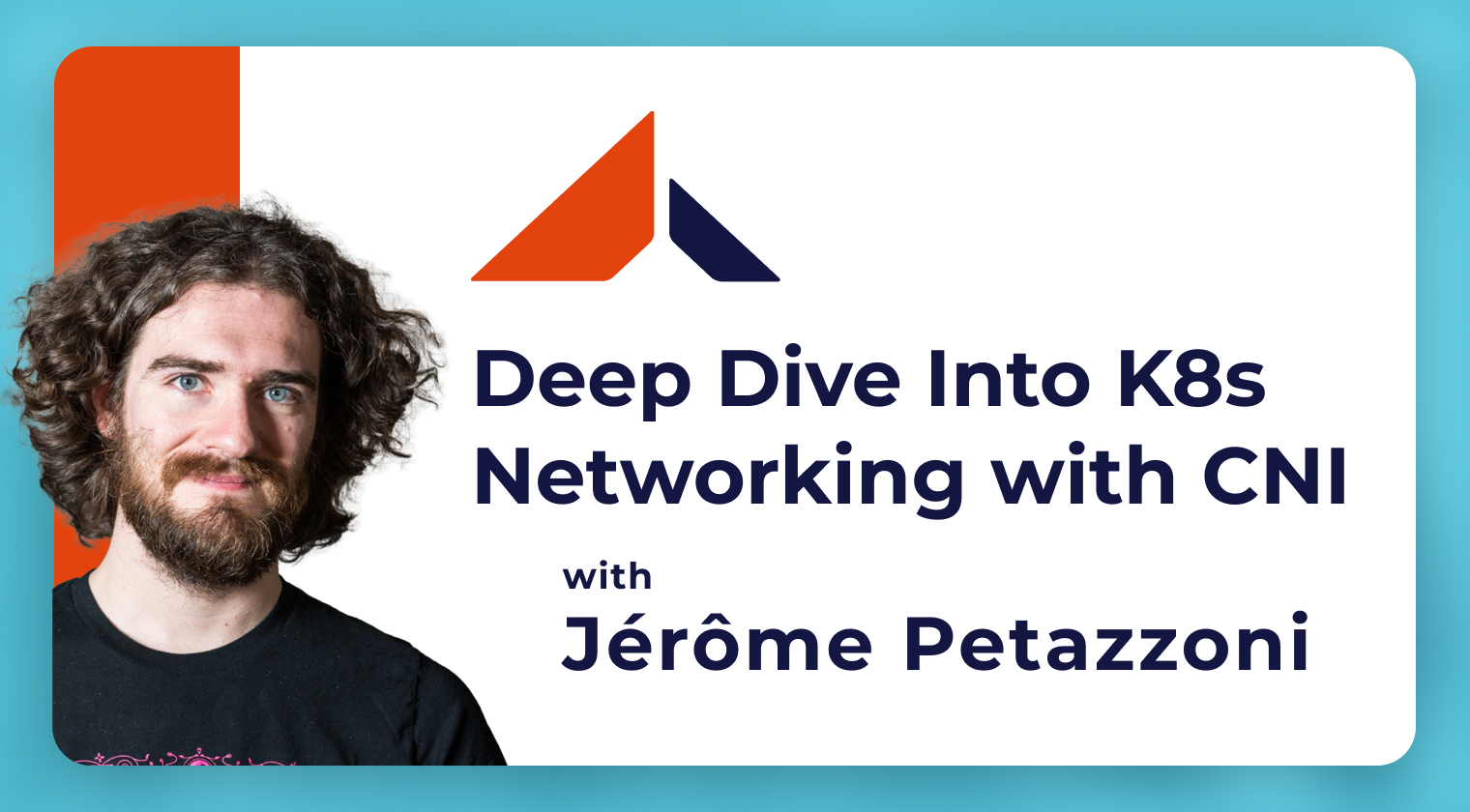
1+ total hours
Beginner
Deep Dive Into Kubernetes Networking with CNI
This course covers concepts around the Container Network Interface (CNI) and how pods communicate on Kubernetes.
with: Jérôme Petazzoni
View Course Info

1+ total hours
Beginner
Deep Dive Into Kubernetes Networking with CNI
This course covers concepts around the Container Network Interface (CNI) and how pods communicate on Kubernetes.
with: Jérôme Petazzoni
Course Introduction
This course is for devs, ops, or even architects, who want to dive deeper into Kubernetes and learn concepts around the Container Network Interface (CNI). We’ll discuss CNI plugins and how pods communicate together on Kubernetes. As an example, we will change the CNI plugin on a live Kubernetes cluster.
This course is part of the Intensive Docker & Kubernetes track. Not sold separately.
Note: All of our bundles are for a one-year subscription.
At the end of the subscription period, your membership does not automatically renew.
Requirements:
- Students should be comfortable using the command line.
- Some experience with Kubernetes recommended.
Course Outline
Kubernets Networking with CNI:
- 1.0 - What is a Kubernetes pod network?
- 1.1 - What is Kubernetes CNI?
- 1.2 - What is the AWS VPC CNI Plugin?
- 1.3 - How To Change a Kubernetes Pod Network
- 1.4 - What is a Kubernetes Overlay?
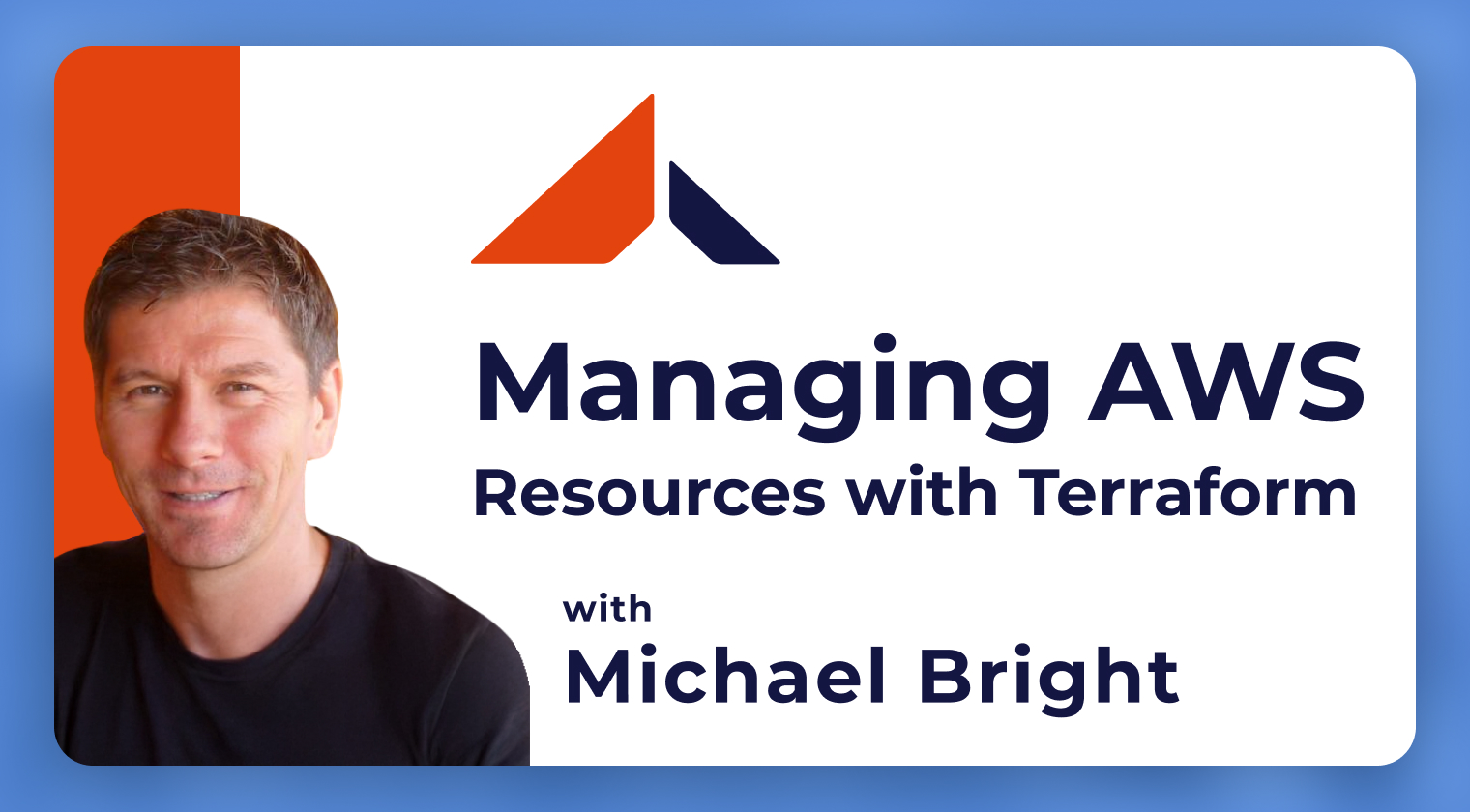
1+ total hours
Beginner
Managing AWS Resources with Terraform
This course explores the basics of using Terraform to manage resources on AWS. Perfect for engineers looking to implement more automation and simplify deployments.
with: Michael Bright
View Course Info

1+ total hours
Beginner
Managing AWS Resources with Terraform
This course explores the basics of using Terraform to manage resources on AWS. Perfect for engineers looking to implement more automation and simplify deployments.
with: Michael Bright
Course Introduction
Get started with the basics of Infrastructure-as-code and see a live demo on how to spin up a web server with Terraform.
This course is part of the Intensive Docker & Kubernetes track. Not sold separately.
Note: All of our bundles are for a one-year subscription.
At the end of the subscription period, your membership does not automatically renew.
Requirements:
- Students should be comfortable using the command line.
- Some experience with Kubernetes recommended.
Course Outline
Managing AWS With Terraform:
- 1.1.1 - What is Infrastructure as Code (IaC)
- 1.1.2 - Benefits of Terraform
- 1.1.3 - Getting Started: Basic Terraform Commands
- 1.1.4 - Example Terraform Configuration File
- 1.1.5 - Intro to Terraform .tf Files
- 1.1.6 - Creating AWS resources with Terraform
- 1.1.7 - Enabling SSH connectivity with Terraform
- 1.1.8 - Turning our server into a web server
- 1.1.9 - Making the server production ready
- 1.2.0 - Creating an S3 bucket with Terraform
Why Engineers & Teams Trust Ardan Labs
From the Lab
Where ideas get tested and shared. From the Lab is your inside look at the tools, thinking, and tech powering our work in Go, Rust, and Kubernetes. Discover our technical blogs, engineering insights, and YouTube videos created to support the developer community.
Explore our content:
Range-Over Functions in Go
Updated on

Miki Tebeka
Should You Learn One Programming Language or Many? A Practical Guide for Software Engineers
Updated on

Ardan Labs










